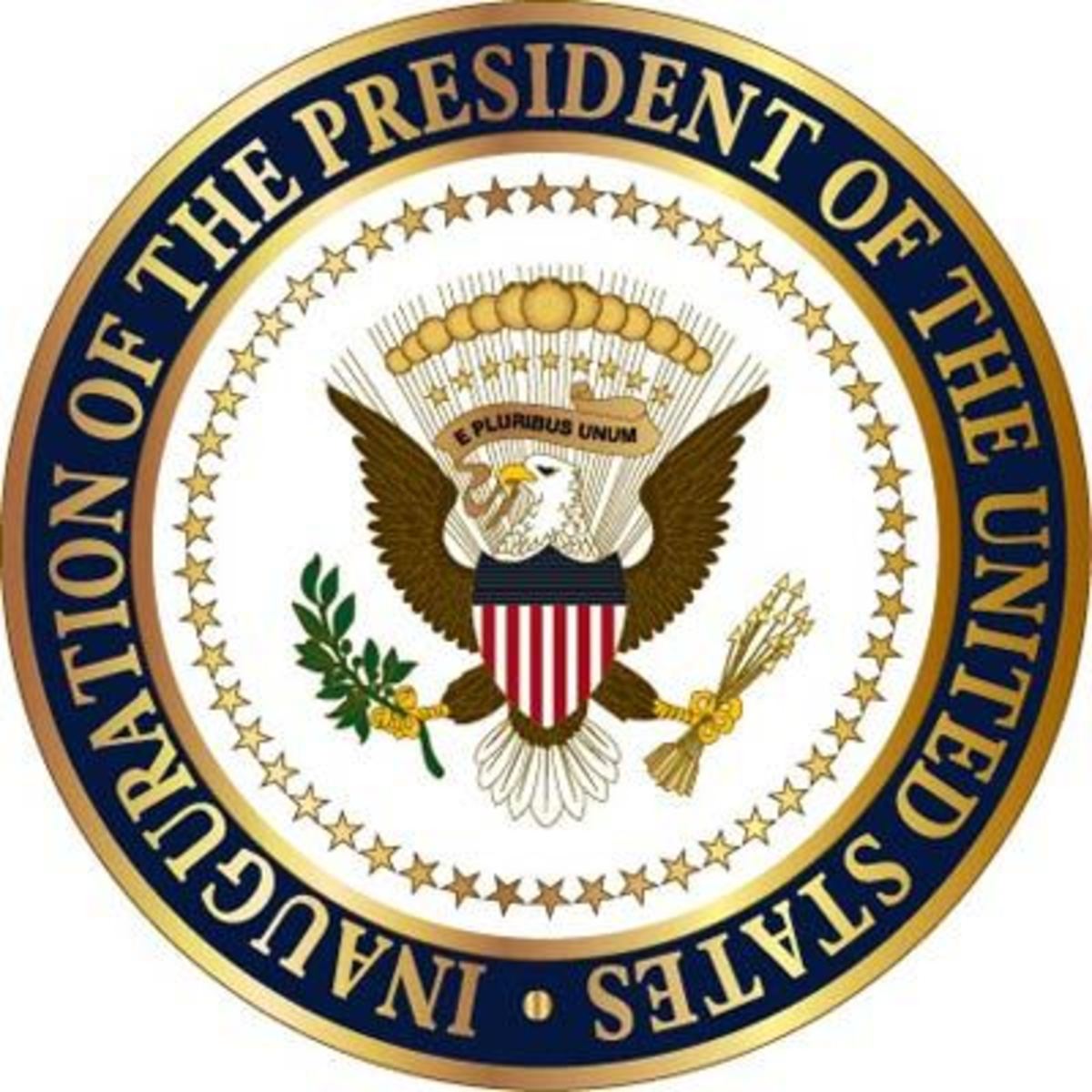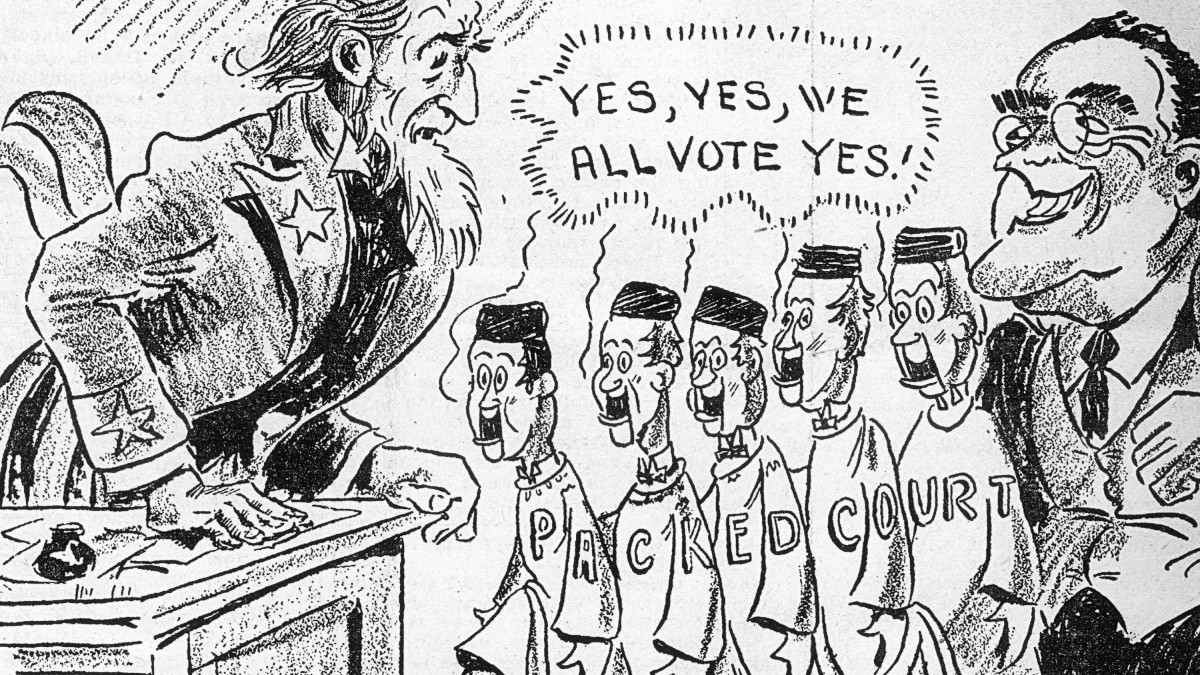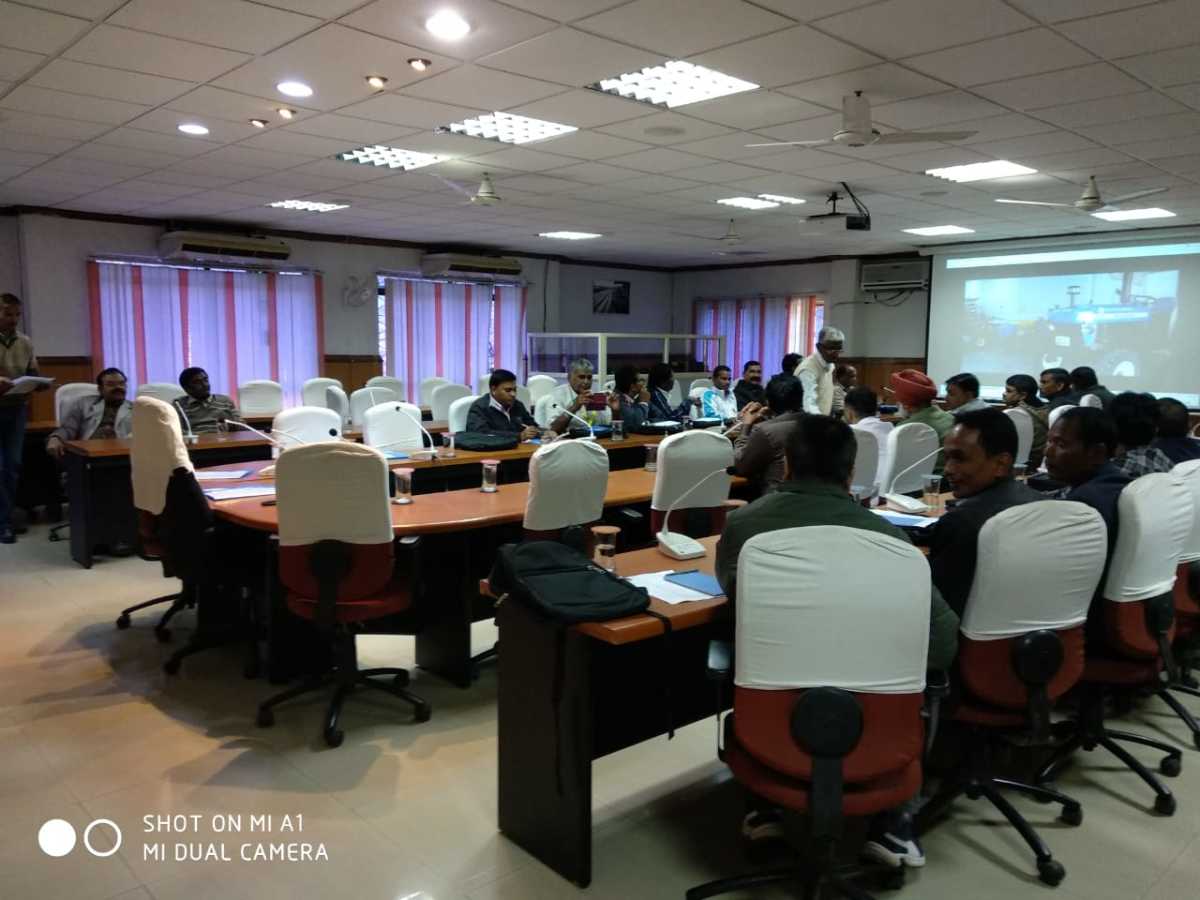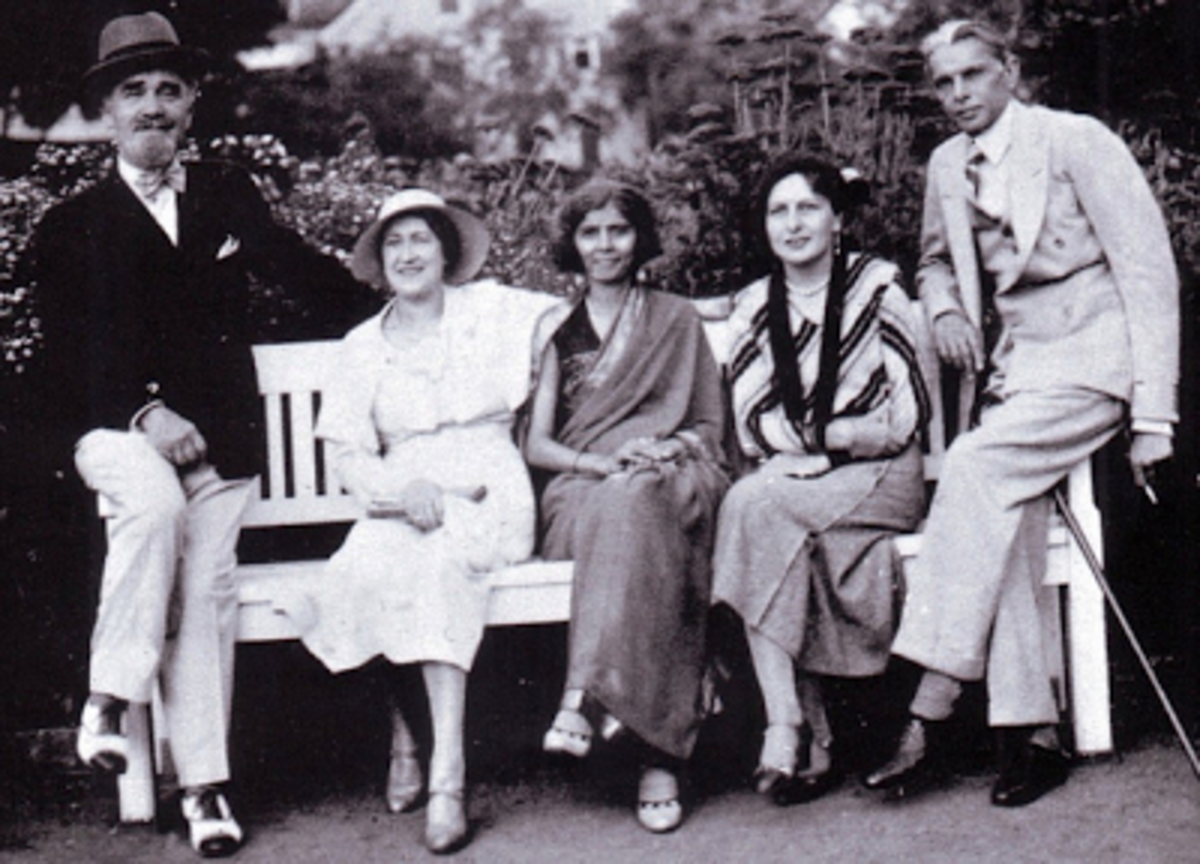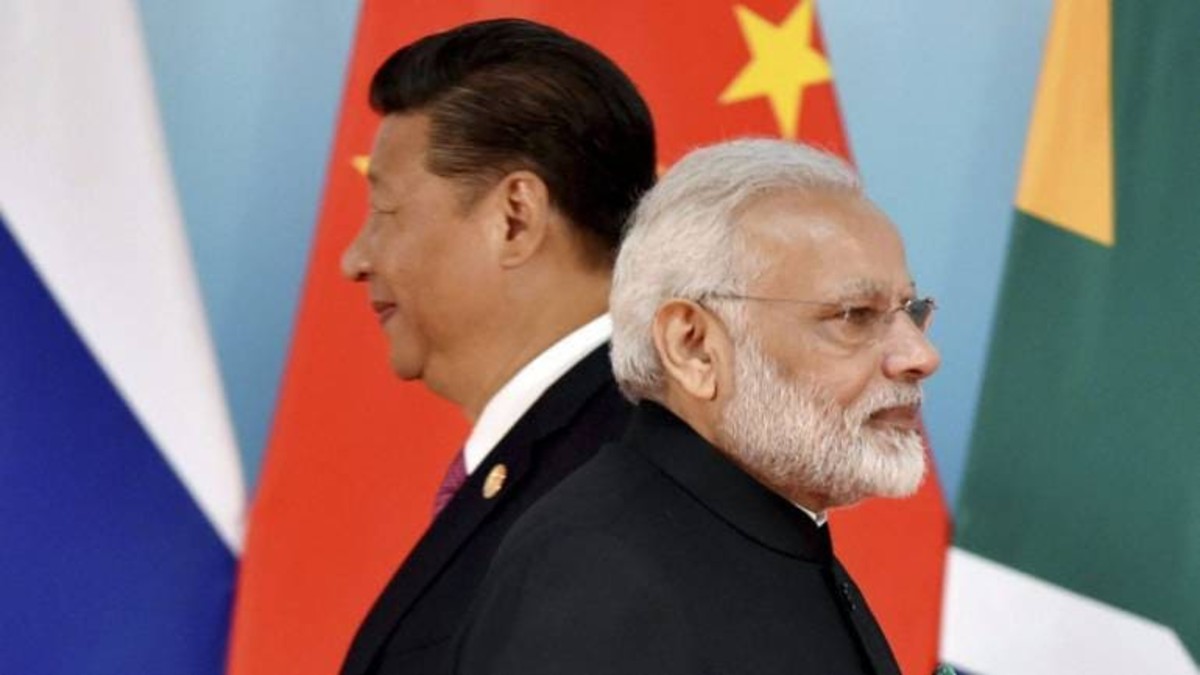President Of India: Powers and Duties
President of India
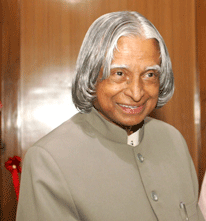
Prime Minister Taking Oath before the President of India
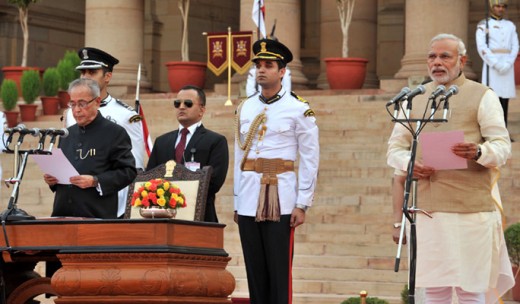
President of India: All in One
The President of India is the Chief Administrator in Indian Administration. The decisions, principles, executions are considered to be the President's own. The Orders and the instructions implemented by the Central Government are considered to be the main responsibility of the Indian President. We know the President of India is not the 'De facto' of Indian Government, rather he is a namely chief who always depends on the Prime Minister and his Cabinet for any kind of decision. Till he has some fundamental power as the Head of an Institution. Here I have dealt in some of his unique powers performed. Here are some important points on powers and duties performed by the President of India.
Executive/Administrative Power
1. Appointment:
He can give appointments to
- The Governor
- Prime-Minister, the Ministers
- Attorney-General
- Comptroller and Auditor General
- Ambassador
- Members of Election Commission
- Chairman and Members of Finance Commission
- Chairman and Members of Language Commission
- Members of the intramural state's Association
- Members of the Scheduled Caste Commission
- Chairman and Members of Schedule Tribe Commission
- Chairman and Members of the Union Public Service Commission
- Chief Justice and other Justices of the Supreme Court and
- Chief Justice and other Justices of High Court
- Vice-Chancellor of a central university and an academic staff of a central university through his nominee
- Directors of IITs
- Ambassadors and High Commissioners to other countries.
- The President also receives the credentials of Ambassadors and High Commissioners from other countries.
The President is the Commander in Chief of the Indian Armed Forces.
He can appoint a Governor to the post of an Administrator to nearby Territory Region. To appoint to the post of Chief Justice, he discusses with the Judges of the supreme court and high court. For other Judges, he discusses among the chief and other Judges of the supreme court. For the Chief Justice in the high court, he informs to the Judges and state Governor.
2. He can dismiss
- Governor,
- Prime-Minister, Ministers,
- Attorney-General,
- Comptroller and Auditor General,
- Ambassador,
- Members of Election Commission,
- Chairman and Members of Finance Commission,
- Chairman and Members of Language Commission,
- Members of the intramural states Association,
- Members of the Scheduled Caste Commission
- Chairman and Members of Scheduled Tribe,
- Chairman and Members of the Union Public Service Commission,
- Chief Justice and other Justices of the Supreme Court and
- Chief Justice and other Justices of High Court,
- Vice-Chancellor of the central university and academic staff of central university through his nominee
- Directors of IITs,
- Ambassadors and High Commissioners to other countries. The President also receives the credentials of Ambassadors and High Commissioners from other countries.
Chief Justice and other Judges of Supreme Court and High Court, Comptroller and Auditor General can be dismissed by the President of India with a unanimous opinion of the members from both the parliaments. Before the dismissal of the chairman and members of the Union Public Service Commission, the complaint must be investigated by a justice of the supreme court.
- Keeping in a balance between Central Government laws and administrative executions, he can instruct the state government to perform its duties properly. (Articles 256,257)
- He can order for building and maintenance, reservation of rail line, in national or security regard.
- Taking the permission of the state government, he can appoint a state Government employee to the post of central Government administrative service.
Common Speech By President of India
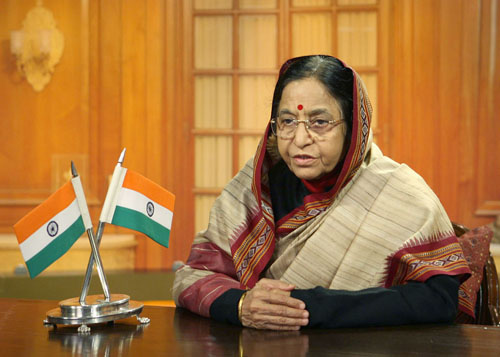
Diplomatic and Military Power
Diplomatic
1. He can appoint and dismiss the Ambassadors and high commissioners. He must take advice from the foreign minister, especially prime minister for these appointments.
2. He receives the I-cards or the credentials of the foreign Ambassadors, Commissioners, and Diplomat.
Military
The President is the Chief-in- Commander of Indian Armed Forces. He is the main of the Indian security force.
1. He gives an appointment to the officials of infantry, navy and air force.
2. He can distribute the Field-Marshal title.
3. He is the chief of the national security force.
4. He can announce war and can make treaty and peace.
Till he is dependant on ministers in this regard.
Legislative Power
Primary Duties:
1. Introductory Speech=After general election he gives his introductory lectures both at the meeting in Loksabha and in Rajyasabha.
2. Common Speech= He gives his inaugurate lecture on the very first day in the combined meeting session of Loksabha and Rajya sabha.
3.Meeting=President can summon a meeting and announce the ending according to his wish either in Loksabha(Lower House) or in Rajyasabha(Upper House).
He has to keep it in mind that at least 6 months is to be given there between start and finish of a meeting of Loksabha or Rajyasabha.
4. Moral Lesson=He can send a moral lesson to the Houses and houses will discuss on it and after discussion, houses can reject it.
More Relevant Important Duties
President Immediate Looking Into
1. Co-Ordinator of Loksabha and Rajyasabha =To negotiate the rivalry between Loksabha and Rajyasabha, he may call a combined meeting for any kind of Bill except money bill. The Speaker of Loksabha will preside over the meeting. A vote will rectify the rivalry.
2 In Absence of Speaker or Chairman =In the absence of Speaker or Deputy Speaker in Loksabha or chairman and Deputy Chairman in Rajyasabha, the President can appoint a member from Loksabha or Rajyasabha to do his job accordingly.
3. Report By Several Commissions=Report of the Comptroller and Auditor General, Finance Commission, Language Commission, the Schedule Caste and Schedule Tribe, the Union Public Service Commission is to be reproduced with the active arrangement of the President of India in the houses.
Bill:
1. President's Assent=Any kind of Bill needs President's consent after then Bill will become a law.
1. President's Consent=For the Bill for language, tax of states, expenditures for stored fund of India, the permission of president is necessary for discussion in houses.
2. President's Obligation=He can give his consent or rejection and send it back for reconsideration. But if again returns he is obliged to give his consent the second time.
3. Governor's Waiting=For a Bill, approved by State Legislative Assembly, Governor may wait for the opinion of the president. The President may or may not give his consent.
Ordinance and Orders:
1.Ordinance= According to article no 123,President can announce ordinance in the time between two sessions in the matter of launching new law.
This ordinance is similar to that of the law approved by houses.
He can draw back his law at any time.
If not approved within 45 days in the houses this will be collapsed.2.he can break the Loksabha before its time.
2. Member's Eligibility Crisis=If a question arises according to the failure of eligibility of a member of the Parliament, the president will brood on it. he is the final judge in this matter.but he will take opinion from election commission before finalizing his decision.
3. Reservation of Money Bill=The President, in the time of monitory emergency, can order to reserve some money bill discussed in the legislative assembly.
4. Permission Before Ordinance=Besides in some subjects Governor is compelled to take president's permission before the ordinance.
Nomination:
1. He can nominate two Anglo-Indian in Loksabha(Lower House).
2. Article 80(3) says the president can nominate 12 persons from any of these field like literature, science, social worker, arts, etc with the advice of prime minister for the Rajyasabha (high House).
But he must apply his power after a conversation with Prime Minister.
Financial and Judiciary Power
Financial Power :
He is fully empowered with monitory power.
1.Money Bill: Without the permission of president no money Bill will be entertained in Loksabha.
2.Accounting: Every year he arranges for the account of the earning and spending or profit and loss of the government during the budget session for the next year.
Judicial Power
1.Pardon(Total Mercy)=He is empowered with pardon and can pardon an offender for the crime.
1.Commutation= he can reduce the punishment.
2.Reprieve= can stop the order of punishment for some time.
3.Respite= can order less punishment than one deserves according.
4.Remission=reduce the quantity or amount of sentence without changing the nature of the punishment.
Sending some important subject for discussion to the Supreme Court,
- implementation of conditions for the officials of the Union Public Service Commission,
- instructions for using the Hindi Language,
- Regional Committee establishment for the Andhra Pradesh Assembly etc
are some of his powers that are usually under no hullabaloo but important
enough.
Judicial Power
Serial No
| Power
| What It Means
|
|---|---|---|
1.
| Commutation
| = he can reduce the punishment.
|
2
| .Reprieve.
| = can stop the order of punishment for sometime
|
3.
| Respite
| = can order less punishment than one deserves according .
|
But most important power of the President of India is to pardon(Total Mercy) which means that he is empowered with pardoning power and can pardon an offender for the crime.
Former President Kalam with Putin and Manmohan Sing
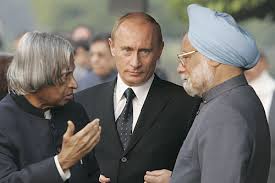
Former President Pratibha Patil with Obama
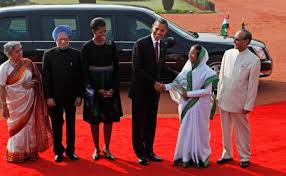
Emergency Power
The part of the Constitution which clarifies the emergency and the power of the President is the most debatable and discussing part of the Constitution. From article no 352 to Article no 360 the emergency and the powers of the President during this time is explained in details.
Emergency has been classified into three groups
1. State of Emergency or National Emergency (352) 2.Administrative Stagnancy in State(356) 3.Financial Emergency(360)
1.State of Emergency or National Emergency (352)
This type of Emergency is referred to in Article No 352. According to this Article if the President thinks that the security of India or its any part is going to be hampered or threatened due to war, foreign attack or outside attack, internal arms awakening, he can announce Emergency.
For what reason or reasons can the President of India declare Emergency in this regard?
1.War.
2. Foreign Attack or Attack from Outside.
3.Arms Mass Awakening
Amendment in the Power of Emergency:-
1. Before 1976 if National Emergency was declared it performed to all parts of the country. But after the 42nd Amendment, the President of India can declare Immediate Emergency in any part of the country.
"Till now Emergency has been declared thrice in 1962,1971(attack from an outside enemy) and 1975 (internal indiscipline)
It was written in the main Constitution that if the President of India declares Emergency, it must be approved by the Parliament within two months from the date of declaration. Once approved it remained for an indefinite time."
2. 44th Amendment in 1978 fixed the time limit of Emergency. After declaration, this must be approved within one month in Parliament. The President could declare, dismiss or amend if the maximum of the members of Loksabha and present and two-third of the voters vote favorably. The validity of six months may be expanded in houses.
3. According to Constitution the President had the power to draw back Emergency with the assistance of ministers. But after the 42nd Amendment, this power goes to The Parliament. The President must obey to follow to declare, dismiss or amend if a maximum of the members of Loksabha and present and two-third of the voters vote favorably.
Declaration After Emergency:-
1. The Parliament can implement the new law in the subjects scheduled in states.
2. The President can change the system of tax distribution between state and center.
3. Central Administration may instruct in administrative regard to the state Government.
The Parliament may extend its validity for one year.
After the dismissal of Emergency, this order can no longer exist for more than six months.
5. Parliament can extend state assembly for one year but after the dismissal of Emergency, validity will not, in any circumstances, exist for more than one year.
6 According to article no 359 the president can order banning in executing fundamental right with the help of the court. The rights banned temporarily will be informed in President's Order. In 1978 on 4th amendment it is said that President can not ban on Allowed Life and Personal Freedom. After the announcement of Emergency India becomes united states. This is not a democracy.
2.Administrative Stagnancy
The President can announce Administrative Stagnancy in States according to Article No 356 if he gets a report from the state's Governor or any other source and gets the power of that particular State on his hand.
In 1992 the President dismissed the State Government in Madhya Pradesh by a notification. Sunarlal Patoya appealed in Madhyapradesh High Court on 7th January in 1993. In this year on 2nd April High Court announced the notification of banning the State Government of MP led by Sundarlal Patoya of B.J.P.Court said the report by the governor did not specify faults.
42th amendment of 1976 says if approved by the Parliament it continues for one year. Validity must not cross more than three years at all.
44th amendment says this can go on six months and total three years can be permitted. If more is required then the amendment should be done.
It happened in Punjab.
In this condition, Governor performs as the chief with the permission of the President. Some advisers are engaged.
Money Bill and Budget are formed by the Parliament.
3.Monetary Emergency
If the President thinks of a financial crisis in some part of the country or the country, he can declare monetary Emergency.
1 Center can instruct States on a financial matter.
2. The President can order the cutting down of salary and allowance of the government service holders.
3. He can give the order to reduce the salary and allowance of the judges of the supreme court and high courts.
4. He can order to reserve Money Bill which is being discussed in State Assembly.

